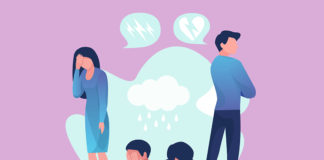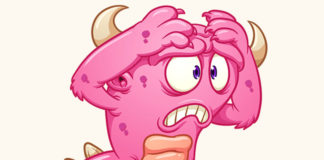Tag: parenting
Withdrawing Kids from Psych Drugs: Why, How, and When
Here are methods for reducing or eliminating a child's psychiatric medications that I have seen work well over years of supporting families through this process.
Lockdown Reading to End DSM Psychiatry?
A review of the "Adult Children of Emotionally Immature Parents" books by Lindsay Gibson. Even though adults experience emotional loneliness, such loneliness can also start in childhood when we might have felt (and I would submit, actually were) unseen emotionally by self-preoccupied parents.
Just Like Viruses, Emotions are Contagious
Now is not the time for family members to be nursing old hurts or believe the all-too-common delusion we all periodically fall prey to—you can get, without giving, when it comes to goodwill. Gestures of decency, gratitude and appreciation will need to prevail.
The Real Myth of the Schizophrenogenic Mother
Acknowledging the role of trauma inflicted by a given individual’s mother is not the same as laying all blame for “mental illness” at the feet of motherhood. Meanwhile, a mountain of evidence has accumulated linking schizophrenia to sexual, physical, and emotional abuse and many other categories of adverse childhood experiences.
Healing Youth with Nature and Connection: An Interview with Peter Mayfield
An interview with Peter Mayfield, founder and Executive Director of the Gateway Mountain Center. Peter talks of his journey from mountaineering to his role as an educator and mentor, and how enabling children and adolescents to connect with nature has such a profound effect on their health and wellbeing.
William James’s Letter to His Depressed Daughter
If you discover that your child has been experiencing a bout with depression, what wise words might you share? Brilliant psychologist William James was forced to address this issue himself when his 13-year-old daughter, Peg, began to struggle with melancholy. I present his long, thoughtful reply for your consideration.
Q&A: My Child Is Self-Harming. How Can I Help?
I walked in on my teenaged daughter cutting her upper leg with a razor. I have also noticed multiple cuts and what look like cigarette burns on her wrists and torso. She’s always made excuses about them, but now I realize she has been self-harming for a while. She swears she isn’t suicidal. What’s this all about, and what can I do?
Talking About Psych Diagnoses and Drugs: A Primer for Parents &...
It is important to tell parents the truth about what can and cannot be known about their child. In this way, people come to appreciate that labels and treatments offered by psychiatric professionals are far from being grounded in hard science.
Helping Children to Overcome OCD: 6 Creative Strategies for Parents
Here, Dr. Ben Furman offers a creative approach to helping children who struggle with OCD. Explaining why behaviors like reasoning, reassuring, and superstitious rituals don’t work, he suggests engaging alternatives that teach kids how to manage their “worry monster” and make sense of their distressing experience.
Lithium: A Survivor’s Guide for Parents
When I was a young adult, I was misdiagnosed with bipolar disorder and placed on lithium. I am 61 years old now, living on the edge of end-stage kidney disease. If I could undo everything, by all means, I would not have taken this drug. It is not safe for anyone at any age.
Study Highlights Mental Health Consequences of Parent Emotion Suppression
New research suggests that when parents model emotion suppression strategies in social interactions, their children’s approaches to social engagement may suffer.
New Video Series: ‘Parenting Today’
This series of thirty video interviews with leading experts from around the world is designed to help parents better understand how to raise strong, resilient kids and how to deal with the pressures exerted on them by the current dominant “mental disorder” paradigm. We hope that this interview series will provide helpful ideas that you may not be able to get anywhere else. The interviews can be found HERE.
A Time For Rain: Teaching Our Children About Sadness
The only way out of the epidemic of feeling-people-turned-medicated-psychiatric-patients is to rebrand and reframe feeling as a cultural collective. And I believe it starts with our messaging as parents and our orientation toward shadow elements like anger and sadness. We have to model a conscious relationship to our own dark parts, and we have to show our children what it looks like to move through these spaces. Feelings can be messy, wild, and sometimes ugly to our constrained sensibilities.
The Great Psychoanalysts 1: Donald Winnicott
From The Philosophers' Mail: Donald Winnicott, an English pediatrician and child psychoanalyst, deserves a place in history for drawing attention to the significance of parenting in...
Introducing “Ten Tips for Parents”
As I settle into my role as the editor for parent resources here at Mad in America, I’m reaching out to folks who have something to contribute to the conversation and asking them if they would be willing to condense what they know into a Ten Tips format for easy digestion and comprehension. The first four are now available.
12 Ways to Help Kids Cope With School Anxiety
In this piece for USA Today, Candy Grande offers 12 non-drug approaches for helping kids cope with school-related anxiety, such as having a discussion about...
Introducing the ‘Parent Resources’ Page
I know how difficult it is for the average parent to get educated about alternatives to the “diagnose a mental disorder and provide a chemical fix” paradigm. I hope that this new MIA parent resource section that I’ll be curating will help to educate you and point you in the direction of valuable resources.
Madness and the Family, Part III: Practical Methods for Transforming Troubled...
We are profoundly social beings living not as isolated individuals but as integral members of interdependent social systems—our nuclear family system, and the broader social systems of extended family, peers, our community and the broader society. Therefore, psychosis and other forms of human distress often deemed “mental illness” are best seen not so much as something intrinsically “wrong” or “diseased” within the particular individual who is most exhibiting that distress, but rather as systemic problems that are merely being channeled through this individual.
The Children Lead
How is it that we allow the agendas of others to occupy our childrens’ minds? Is it possible that a stranger can know our child better than we do? Is there anything a baby needs to learn that can’t be taught by being held in a parent’s arms? Because my children’s eyes and ears and thoughts are on me every day, they are key players in my ongoing efforts to live a right life. I count on their eyes and ears and thoughts to shore me up during times of temptation. They always lead me home.


























